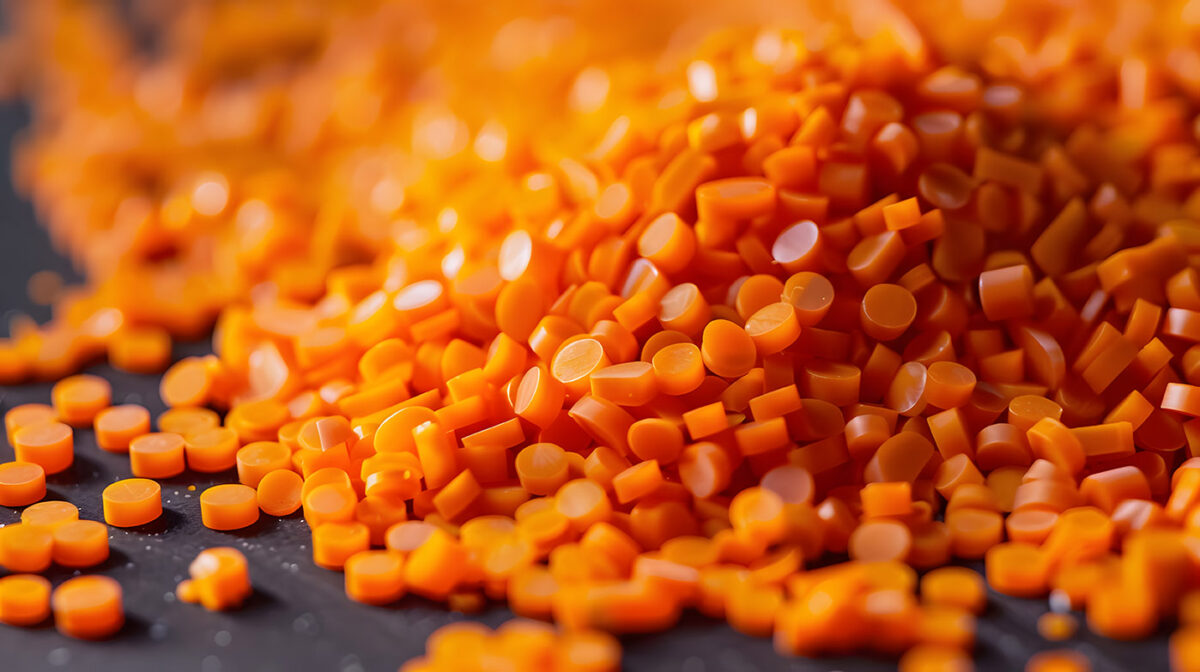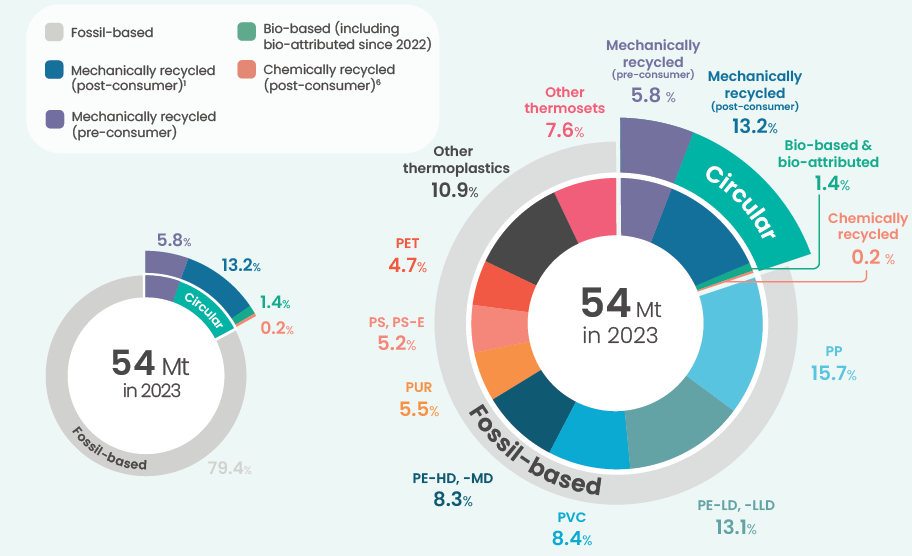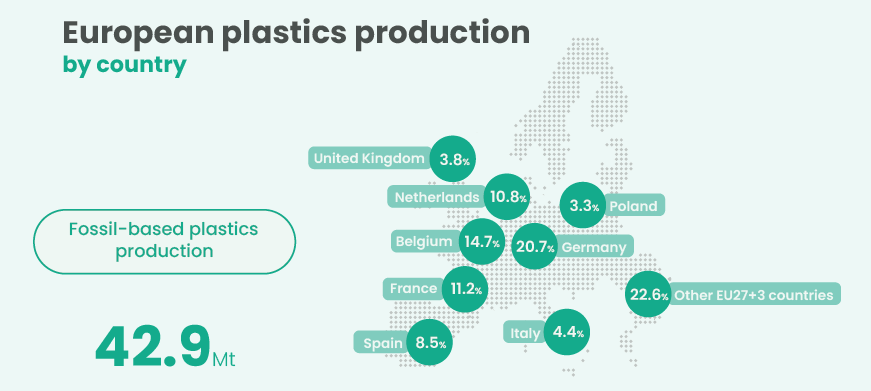Europe’s Plastics Industry in 2023

Plastics Europe has published its latest study, Plastics—The Fast Facts 2024, which presents preliminary global and European plastics production data for 2023.
The European plastics industry is undergoing a significant transformation, balancing economic contributions with the push for sustainability. In 2023, the sector faced challenges and opportunities as it transitioned toward a circular economy.
You can also read: A Look Ahead: Green Materials Trends for 2030
European Plastics Production: Current Trends
In 2023, Europe produced 54 million tonnes (Mt) of plastic, of which 42.9 million were fossil-based. Mechanically and chemically recycled plastics accounted for 7.2 Mt, reflecting progress in recycling, while bio-based plastics contributed just 0.3 Mt, signaling a need for more significant investment in sustainable alternatives.

European plastic production in 2023. Courtesy of Plastics Europe.
Germany led Europe in production, contributing 20.7% of fossil-based and 40.7% of bio-based plastics. Other significant players included Belgium, Italy, France, and Spain, showcasing the diversity of Europe’s plastics manufacturing landscape.

European fossil-based plastics production in 2023. Courtesy of Plastics Europe.
The Global Context
Globally, plastics production reached 413.8 Mt in 2023, with Europe contributing 10.4%. However, fossil-based plastics dominated, representing 90.4% of global output. Circular plastics, including recycled and bio-based materials, accounted for only 8.7%, with chemically recycled plastics making up a mere 0.1%. These figures highlight the slow adoption of sustainable technologies worldwide.
Economic Contributions of the Plastic Industry
The European plastics industry remains a critical economic driver. In 2023, it employed over 1.5 million people across more than 51,700 companies, generating a turnover of approximately €365 billion. It also achieved a trade surplus of €12.7 billion, with major trade partners including the United States, China, Turkey, and the United Kingdom.
Circular Economy Challenges
Despite progress, Europe’s transition to a circular plastics economy faces significant hurdles. Circular plastics account for only 13.2% of total production, driven primarily by mechanical recycling. Chemically recycled plastics, though promising, remain underutilized at 0.2%, while bio-based plastics continue to make up only a small fraction of the industry. These challenges call for increased investment in innovative recycling technologies and sustainable materials.
Toward a Sustainable Future
European fossil-based plastics production has steadily declined from 60.2 Mt in 2018 to 42.9 Mt in 2023, reflecting efforts to reduce demand and focus on sustainability. Scaling circular plastics production, advancing recycling technologies, and fostering bio-based innovations will be crucial for the industry to meet future environmental goals.
By prioritizing collaboration, innovation, and sustainable practices, Europe’s plastics industry is well-positioned to lead the global shift toward a more sustainable future for plastics production.
To read the complete document click here.
